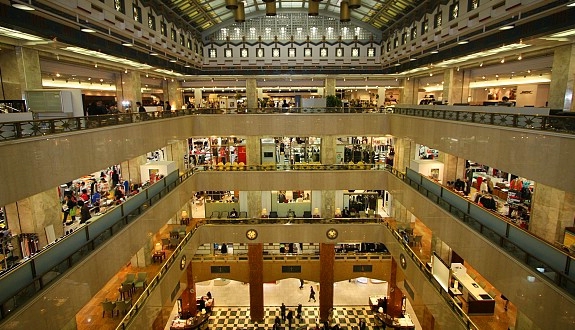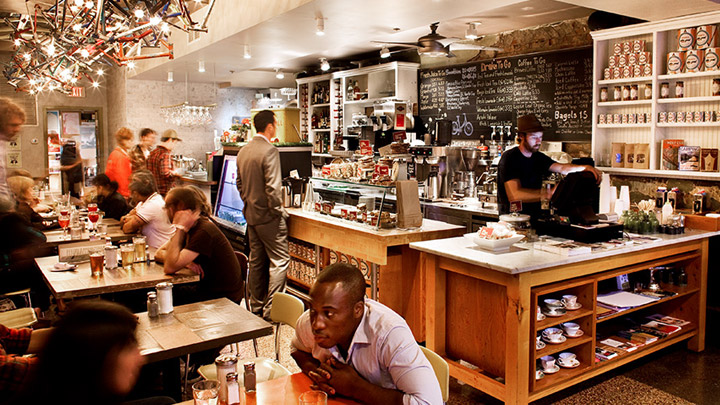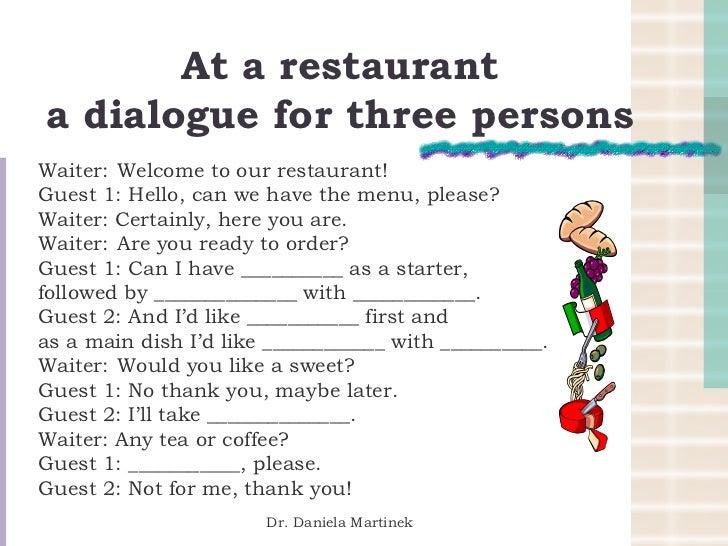https://eduline.hu/segedanyagtalalatok/2682-Angol_erettsegi_tetel_13
TASK 1
Examiner: Good morning! Take a seat, please.
How are you feeling at the moment?
How did you feel this morning when you woke up?
What will you miss most now that you’re leaving school?
Would you stay one more year? Why (not)?
Now I’m going to ask you a few questions. If you can’t understand me, I can repeat the question once. Let’s get started.
A
Describe a perfect date.
So, firstly you buy a nice bunch of flowers and give that to the girl when you pick her up. I don’t think you need a car to pick a girl up, you can just meet her outside her house, that’s enough. So then the best thing to do would be to go to the cinema or to a restaurant together, and finally go for a big walk somewhere very nice, and talk about the movie, or the food, or anything.
What do you think about blind dates?
My opinion is that it’s for people who feel hopeless to find a partner. But I think it can be both dangerous and very surprising. I personally find it a little bit strange to have a date with somebody without having seen her or him. We can easily run into an embarrassing situation. I don’t think I would every try this, although I have a friend who has gone on blind date and is now going out with that girl.
What would you wear on a first date?
That’s a difficult question. I mean I’m sure it would take me a lot of time to decide. Because on the one hand you want to look very beautiful, of course, so that your date goes Oh! when he sees you. On the other hand, you don’t really want him to see how much effort you have put into looking good, he should think that you just happened to be beautiful. So it’s not easy…
Is it usual for people in your country to ‘go Dutch’ if you go out together?
To my mind, I think that depends on the people. For instance, if a larger group of people go out together, they will definitely go Dutch. But if we are talking about a romantic date, I suppose there are still some gentlemen in Hungary who will pay for the girls’ meals too. If I go out with my friends, we always go Dutch, because for example when we go to the bar we choose different things at different prices, so I think this way it is fair with everybody.
What time should teenagers come home in the evening?
Well, I think parents and teenagers have really different ideas about this. I think my mum would want me to be home by ten or eleven, but you know if it’s a spring or summer evening, and you can sit outside with your friends, you don’t really feel how fast time goes by. I think if you have a mobile phone, the situation is a bit better, because you can always call or text and say that you’re going to be late.
I see. Now let’s move on to the next topic, which is different cultures..
B
What has surprised you when you’ve met people from other countries?
Sometimes, because of the foreign people’s unique culture, their clothing can be surprising. Maybe their skin colour too and their basic characteristics. For example Mediterranean nations have darker hair, usually wavy or curly (such as Greek people), they have bronze skin too and they are temperamental. Besides their eating habits can be surprising too, like French people love to eat snails but it’s really strange for Hungarian people.
What are some birthday traditions you know of from other countries?
It's a tricky question. I don't really know any traditions even in my country. Perhaps giving a present is a tradition everywhere, or maybe not and then that can be a cultural difference. But in all the countries I know, the person who has their birthday gets some present, and throws a party. Perhaps I haven’t seen enough of the world yet.
When people from other countries think about your culture, what do they usually think of?
Actually I have never been in a situation like this, I have never talked about my culture with foreign people, but I think the first thing that they think of is… I have no idea, maybe the eating habits, the goulash soup and the Gundel pancake. Oh I know! They think of Puskás, and then ask what has happened to Hungarian football since then.
If you could change one thing about your culture, what would it be?
Let me think, it’s a really difficult question. Actually the Hungarian people have some bad habits and we should change a lot of things. We can’t change our past, but if we don’t give up, if we don’t hate each other, if we can solve our problems in a human way, than we can change our future. But if we do that what we are doing now then I’m afraid it won’t be better.
Do you know what culture shock is? Have you ever had culture shock?
Yes, I do, we learnt about it in school. It was really funny actually, because someone thought it’s when you do too many cultural things, like three museums a day, but now we know it’s when you meet someone or something from a different culture and it’s very very different from what you know. No, I don’t think I’ve ever had culture shock, but I’d like to travel a lot, so maybe I will!
Well, I see. Now, let’s change the topic. We’re going to talk about young and old age.
C
What's the best way to teach manners to children?
I think the only way is if you show the right example to them. Because if it surrounds them then they will have good manners. And talking to them is also important because when they are doing something bad we should explain why it's bad and what they have to do instead of that.
Where do you see yourself when you are 70 years old?
Actually I've never thought of this before but maybe in the cemetery or with my grandchildren. I mean, I’d love to spend my old age with my family, but I don't really know if it’s possible, because my lifestyle isn't the healthiest and the most peaceful. I guess only time will tell.
Do you think it is easier to learn as a child or as an adult? Why?
I think children can learn easier than adults. The main reason is that children have more free time and they can concentrate solely on learning. Adults have got lots of things to do: work, family, paying bills, and so on, so they must deal with everything. I also think you learn faster as a child, but I don’t exactly know why that is.
Do we have to answer children's questions even if they are inappropriate ones?
Well yes, children's sometimes have some really strange questions and there are no answers for most of them. Also I think we should try to say something clever, because if we just say that this is a stupid question, and why s/he asked it then the child won’t ask us about important things. I believe it’s very important to maintain curiosity in children.
What are some advantages of being retired?
My grandma retired last year and she says it’s really great that now she has time for all her hobbies, like reading books, playing bridge with her friends, travelling to nice places in Hungary, and of course be with us! I guess though not everyone is so fortunate and some people find it really difficult to live on their pension.
Thank you, that’s the end of the first part of the test.
TASK 2
Now look at this situation. You can study the sheet for half a minute. When you are ready, start a conversation with me. I am the salesperson in the car dealership.
You are planning to buy a new car. You’re in the car dealership, trying to decide which model is the best option for you. Ask the salesperson for help. Consider the following:
Ø price
Ø leasing options
Ø your needs
Ø the possibility of a test drive

- Good afternoon. Could you help me choose a car for myself?
- Certainly. Which cars in the saloon do you like?
- The black one looks very beautiful. How much does it cost?
- That car is not the cheapest one, but you would definitely love it.
- Yeah, it looks comfortable. Comfort is really important for me, as sometimes I need to give my clients a lift somewhere. Is it also reliable?
- Yes, very much.
- So you said it’s expensive. Can you tell me something about the leasing conditions? I can’t afford to pay the whole sum right now.
- Take a look at this document. It has all the details.
- Thank you. Could I take it for a test drive? I would like to see what it feels like to drive it. I need a very fast car.
- I’m afraid you can only take it tomorrow.
- Oh, you’re closing soon, aren’t you?
- That’s right.
- In that case, tomorrow sounds good to me. See you tomorrow then.
- See you!
Thank you, that’s the end of the second part of the test.
TASK 3
In the last part of the test, you will compare and contrast some pictures. Now you have half a minute to look at these pictures and the prompts below them. When you are ready, you will have three minutes to talk.
The pictures below show primary school students dressed in different ways. Compare and contrast them, including the following points:


Ø the advantages of having a school uniform
Ø the disadvantages of having a school uniform
Ø what parents’ opinion might be of this matter
Ø your personal preferences
That kid in the first picture seems to be very pleased by his school uniform. Maybe he actually likes the colours, that bright blue is probably the right choice for a primary school child. A great thing about uniforms is that they conceal the social differences between the students and make everyone look equal.
They are also very practical, which is probably why some parents like them so much. The expensive clothes they buy for their children do no become dirty because they run around in the trousers and sweaters provided by the school.
However, not all parents like uniforms. I think many feel that their children are sort of deprived of their right to express themselves if they are told what clothes to put on. Also, as opponents of the school uniform often point out, it is very easy to show which social class you belong to even if you are wearing a uniform – just think of accessories or mobile phones.
I’m not sure I would like my child to wear a uniform to school. Because although it does give you a sense of belonging to a community, I find that it goes against the freedom of the individual. People should be able to wear whatever they like.



















